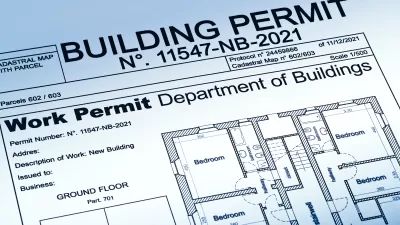A common refrain heard by locals opposed to new housing developments is that area schools can’t absorb the increase in students they’ll bring. As the nation approaches an “enrollment cliff,” the data tells a different story.

A new Shelterforce article reveals that concerns about school overcrowding - a common argument against affordable housing development - contradict actual enrollment data showing widespread declines across U.S. school districts.
In many cases, proposed affordable housing projects faced opposition due to school capacity concerns, including Steamboat Springs, Colorado, where voters rejected a major affordable housing development partially due to school overcrowding fears. However, nationwide data shows K-12 enrollment is projected to drop by 8% between 2019 and 2030, with many districts already experiencing significant declines.
In California's Coachella Valley, where an ambitious 10,000-unit affordable housing initiative is underway, local school districts report continued enrollment decreases rather than overcrowding. One district has lost over 2,000 students since 2018, while another operates at just 75% capacity.
- The enrollment decline stems from multiple factors, including:
- Falling birth rates since the 2008 recession
- Broad demographic shifts
- COVID-19 impacts on public school enrollment
School administrators note that declining enrollment threatens school funding and stability, with many districts actively seeking more students. As Adam Bosch of Hudson Valley Pattern for Progress states in the article, "We should be on our knees praying for a hailstorm of children to fall from the sky."
FULL STORY: Fact Check: New Housing Doesn’t Lead to Overcrowded Schools

Maui's Vacation Rental Debate Turns Ugly
Verbal attacks, misinformation campaigns and fistfights plague a high-stakes debate to convert thousands of vacation rentals into long-term housing.

Planetizen Federal Action Tracker
A weekly monitor of how Trump’s orders and actions are impacting planners and planning in America.

In Urban Planning, AI Prompting Could be the New Design Thinking
Creativity has long been key to great urban design. What if we see AI as our new creative partner?

Pedestrian Deaths Drop, Remain Twice as High as in 2009
Fatalities declined by 4 percent in 2024, but the U.S. is still nowhere close to ‘Vision Zero.’

King County Supportive Housing Program Offers Hope for Unhoused Residents
The county is taking a ‘Housing First’ approach that prioritizes getting people into housing, then offering wraparound supportive services.

Researchers Use AI to Get Clearer Picture of US Housing
Analysts are using artificial intelligence to supercharge their research by allowing them to comb through data faster. Though these AI tools can be error prone, they save time and housing researchers are optimistic about the future.
Urban Design for Planners 1: Software Tools
This six-course series explores essential urban design concepts using open source software and equips planners with the tools they need to participate fully in the urban design process.
Planning for Universal Design
Learn the tools for implementing Universal Design in planning regulations.
planning NEXT
Appalachian Highlands Housing Partners
Mpact (founded as Rail~Volution)
City of Camden Redevelopment Agency
City of Astoria
City of Portland
City of Laramie





























